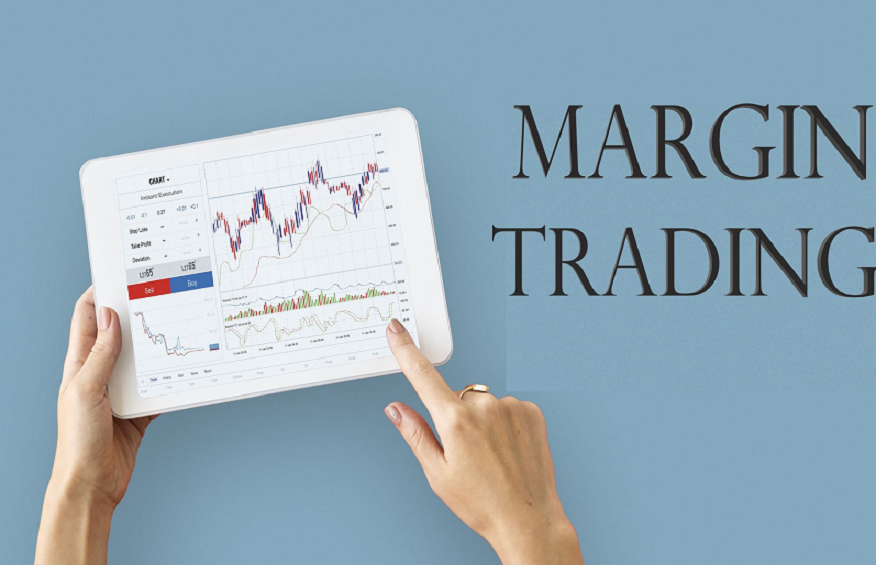Margin trading is a financial strategy that allows investors to borrow funds to buy stocks or other financial instruments. It’s like a double-edged sword, providing the potential for higher returns but also carrying increased risk. This article delves into the concept of margin trading, its advantages and pitfalls, and why it’s crucial to approach it cautiously. We’ll also shed light on m.Stock, one of the best trading apps, and its margin trading service with noteworthy features.
Understanding Margin Trading
Margin trading allows investors to leverage their positions by borrowing funds against their existing investments. This borrowed money is used to buy additional securities, increasing the potential returns on an investment. The amount borrowed is secured by the investor’s current holdings, acting as collateral.
One of the key aspects of margin trading is the Margin Trading Facility (MTF). A MTF calculator helps investors determine the amount they can borrow based on their existing portfolio and margin requirements. The higher the margin, the more one can borrow to invest.
The Double-Edged Nature of Margin Trading
Pros:
1. Increased Buying Power: Margin trading amplifies your purchasing capacity, enabling you to invest in more shares than you could with just your own capital. This potentially magnifies your profits when the market is favorable.
2. Diversification of Portfolio: With increased buying power, you can diversify your portfolio by investing in a broader range of stocks or assets, spreading out the risk.
Cons:
1. Amplified Losses: Just as margin magnifies gains, it also amplifies losses. If your trades go south, you could end up owing more money than you initially invested, potentially leading to significant financial loss.
2. Interest Payments: Borrowed funds come with interest payments. Even if your trades are not performing well, you are still obligated to pay the interest on the borrowed amount, which can add financial strain.
3. Margin Calls and Forced Liquidation: When the value of your holdings falls below a certain level (maintenance margin), brokers issue margin calls, demanding additional funds or selling off assets to cover the debt. Forced liquidation can lock in losses and derail your long-term investment strategy.
m.Stock’s Margin Trading Service
m.Stock is considered one of the best trading apps, and it offers a robust margin trading service with several appealing features:
1. Lowest Rate of Interest from 6.99%: One of the significant benefits of using m.Stock for margin trading is a lowrate of interest starting at just 6.99%. This low rate can potentially reduce the overall cost of borrowing and boost your potential returns.
2. No Limit on Holding Period: Unlike some platforms that impose restrictions on the holding period for margin trades, m.Stock allows flexibility with no specified time constraints. You can hold your margin trades for as long as needed to meet your investment objectives.
3. Lifetime ZERO Brokerage on all MTF Trades: m.Stock provides a unique advantage by offering lifetime zero brokerage on all Margin Trading Facility (MTF) trades. This means you can engage in margin trades without incurring any additional brokerage fees, enhancing your cost efficiency. Moreover m.Stock is one of the best tradingplatformthat offers pre-pledge facilities on margin trading for a wide variety of 700+ scrips across the market.
The Importance of Caution
While m.Stock offers attractive features for margin trading, so it’s crucial to exercise caution when engaging in this financial strategy. Here are some important considerations:
1. Risk Management: Understand and assess the risks involved in margin trading. Only invest what you can afford to loseand have a well-defined risk management strategy in place.
2. Education and Research: Educate yourself about the market, stocks, and the specific assets you intend to invest in. Conduct thorough research before making any investment decisions.
3. Regular Monitoring: Keep a close eye on your margin trades and the overall market conditions. Be prepared to act swiftly if the market starts moving against your positions.
4. Consult a Financial Advisor: If you’re new to margin trading or uncertain about your strategy, consider seeking advice from a qualified financial advisor.
In conclusion, margin trading can be a powerful tool for investors to maximize their potential returns. However, it comes with significant risks, making it crucial for individuals to approach it cautiously. m.Stock’s margin trading service, with its attractive features, provides a viable platform for those seeking to engage in margin trades, but it should always be used with careful consideration of the associated risks and prudent financial management.




